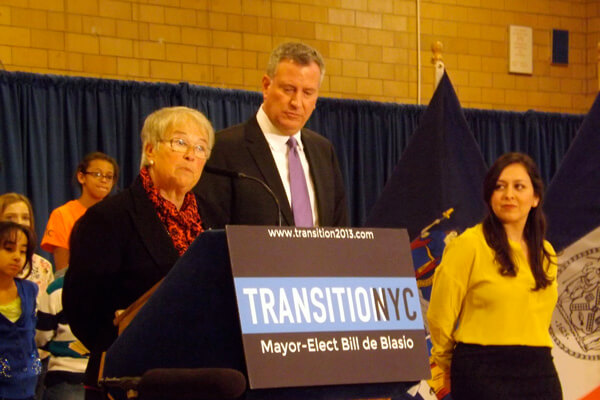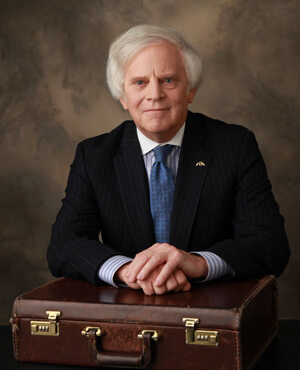Robert Pinter. | VADIM SHEPEL
Police arrested more men than previously known in controversial 2008 prostitution stings that involved young undercover vice cops first soliciting consensual sex from men in six Manhattan porn shops then offering to pay for the sex and arresting the men for prostitution.
Internal NYPD records recently disclosed in a federal lawsuit brought by Robert Pinter, who was busted in one of the stings, show that police arrested another 12 men on top of the 29 who were already known to have been arrested.
The NYPD’s legal’s unit, the city’s Law Department, and the Mayor’s Office of Special Enforcement (OSE) cited the prostitution arrests in nuisance abatement lawsuits they brought against the porn shops in an effort to shut them down.
Documents in Robert Pinter lawsuit versus city show extent of stings
The records show that the pattern seen in Blue Door Video on First Avenue in the East Village of older men being solicited by younger cops was seen in other porn shops, but it was not nearly as pronounced as it was at Blue Door. Men arrested in the other shops ranged in age from their late teens to early 40s. Nine of the 14 men busted in Blue Door were over 40.
The NYPD records suggest that police were not arresting prostitutes. Of the 14 men arrested in Blue Door, only one had a prior arrest and that was for grand larceny. Of the 41 men arrested in all six shops, 15 had prior arrests and a few had extensive criminal records, but just two out of the 41 had prior arrests for prostitution.
The same vice cops who made the porn shop busts also made at least another 16 prostitution arrests of men and a few women in two Manhattan spas. Those spas were also sued in nuisance abatement lawsuits.
After Pinter blew the whistle on the arrests in late 2008, they received extensive coverage in Gay City News and attention from lesbian and gay elected officials, including City Council Speaker Christine Quinn. That attention generated serious concern in the NYPD.
In 2009, on February 10, senior police commanders, including Joseph Esposito, then the highest-ranking uniformed officer in the NYPD, met to discuss the arrests and that meeting was followed by a second with Raymond Kelly, the police commissioner. Those meetings were discussed in depositions that were taken during Pinter’s lawsuit and excerpts were filed in the case. At one of those meetings, Brian Conroy, then the commanding officer of the Vice Enforcement Division, was instructed to attend a February 11 meeting that was organized by Quinn’s office.
“I was directed to have a meeting with Councilperson Quinn’s office,” he said in one undated excerpt.
The documents also suggest that there were some efforts to push back against charges that police were targeting gay men and the locations where they cruise in these arrests. In depositions, various police officers and commanders insisted that they were responding to complaints about the locations.
In a report on the arrests that was presented at the February 10 meeting, the 911 calls that were made either from or near the porn shops that allegedly led police to make the prostitution arrests were listed. The number of complaints ranged from 14 to 73 though it is not known with certainty how many of the complaints occurred outside the shops and therefore were beyond the control of their owners.
In one document, Conroy complained after the NYPD’s legal unit withdrew its nuisance abatement case against Unicorn DVD, which is at Eighth Avenue and 27th Street, saying that it made police look as if they had done something wrong. Police arrested seven men for prostitution in Unicorn in late 2008. The men were Latino or African-American and ranged in age from 19 to 44. Three had prior arrests though none was for prostitution.
In yet another document, Shari Hyman, then the head of the OSE, attempted to justify the disparity in ages between the undercover officers in Blue Door and the men arrested there by signing on to Craigslist and reviewing the personals. When she found one saying “Son seeks Daddy (We hooked up at the BLUE DOOR VIDEO),” she sent it to Charles Campisi, who heads the NYPD’s Internal Affairs Bureau, which was investigating Pinter’s arrest at that time. In this explanation, the store, presumably, is a location at which older and younger men were known to hook up.



































